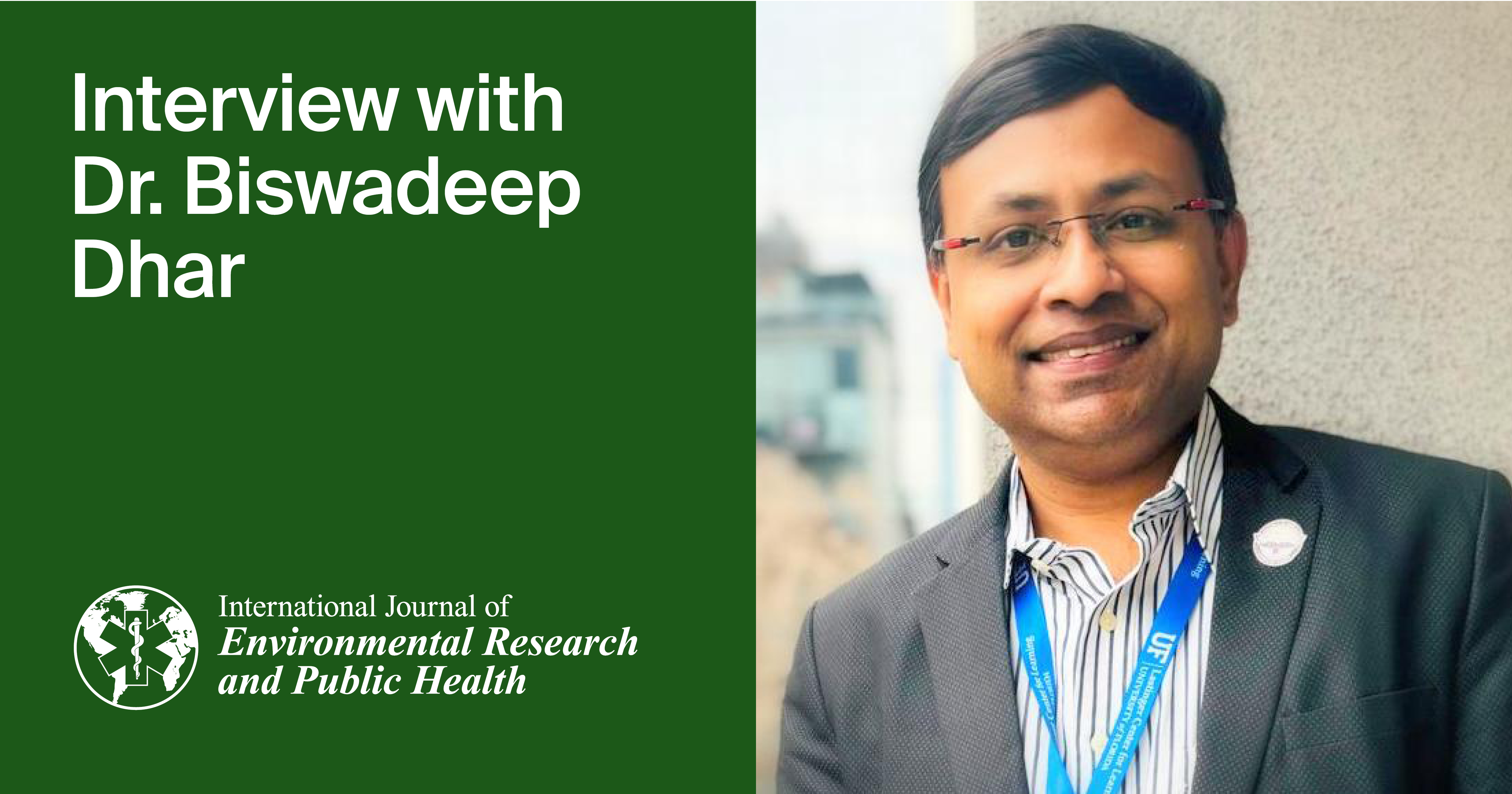
International Journal of Environmental Research and Public Health | An Interview with the Author—Dr. Biswadeep Dhar
Name: Dr. Biswadeep Dhar
Affiliations: 1 Department of Family, Youth and Community Sciences, Institute of Food and Agricultural Sciences, College of Agricultural and Life Sciences, University of Florida, Gainesville, FL 32611, USA; 2 Department of Human Ecology, University of Maryland Eastern Shore, Princess Anne, MD 21853, USA
Research interests: health behavior; health disparities; lifestyle health behavioral interventions
“Perceived Discrimination Is a Mediator of Rural Identity and Cardiometabolic Multimorbidity Among U.S. Adults”
by LaToya J. O’Neal, Lisa Scarton, Ara Jo, Biswadeep Dhar, Folakemi T. Odedina and Diana J. Wilkie
Int. J. Environ. Res. Public Health 2025, 22(3), 426; https://doi.org/10.3390/ijerph22030426
Article Link: https://www.mdpi.com/1660-4601/22/3/426
Dr. Biswadeep Dhar is an Assistant Professor at the University of Maryland Eastern Shore and an Associate Member of the Greenebaum Comprehensive Cancer Center (NCI-designated), University of Maryland in Baltimore. His research focuses on health behavior, disparities, and lifestyle health interventions among vulnerable populations. We had the pleasure of speaking with him following the publication of his recent paper in the International Journal of Environmental Research and Public Health (IJERPH, ISSN: 1660-4601).
The following is a short interview with Dr. Biswadeep Dhar:
1. Congratulations on your recent publication! Could you briefly introduce yourself and your current research focus?
Thank you! I am currently a tenure-track Assistant Professor at the University of Maryland Eastern Shore and an Associate Member at the University of Maryland’s Greenebaum Comprehensive Cancer Center. My research focuses on behavioral health interventions targeting chronic diseases, such as obesity, and obesity associated diabetes, heart disease, and cancer, particularly among low-income, marginalized populations in the U.S. and globally. The paper we published examines the prevalence and risk factors of cardiometabolic multimorbidity—defined as the coexistence of at least two chronic conditions (like type 2 diabetes, heart disease, and hypertension)—among underserved populations in the U.S. A key contribution of our study is identifying perceived discrimination as a mediating factor between rural identity and multimorbidity.
2. What were some of the major challenges and innovations you encountered during this research?
One significant challenge was gaining trust and access within diverse communities. Building relationships through community advisory boards and faith-based organizations is critical, especially when working across different racial, ethnic, and cultural groups. Another challenge is securing funding, especially in the current climate of federal budget cuts to diversity, equity, and inclusion (DEI) initiatives. While we were fortunate to have funding for this study, sustaining such work often depends on state or foundation-level grants. In terms of innovation, our approach emphasizes culturally tailored, multilevel interventions that address both behavioral and social determinants of health, something I believe is essential to effective public health research.
3. What motivated you to conduct this research?
I am originally from India, and I have witnessed firsthand the gaps in healthcare access in both developing and developed countries. These experiences have fueled my passion to conduct meaningful research that not only identifies health disparities but also drives community-specific solutions. I aim to give back, first by being trained in the U.S. context and then by expanding this work internationally. Currently, I am collaborating with colleagues in Singapore and South Asia to design interventions that reflect local realities.
4. How do you see the research trends evolving in your field, and what advice would you give to early career researchers?
The field is evolving rapidly, especially with the integration of AI, digital data collection, and advanced analytical tools. Staying current is essential. I always tell my students—and remind myself—that learning never stops. Even as a faculty member/early career professional, I take online courses to stay up to date with emerging methods and software. For young scholars: learn, collaborate, and share. Do not underestimate your contribution—even as a student, you might bring fresh knowledge about new tools or approaches. Also, disseminate your findings beyond the academic bubble. Explain your work in accessible ways to your community. The goal is to create a real-world impact.
5. How was your publishing experience with IJERPH?
Publishing with IJERPH was a very positive experience. The peer-review process was rigorous and significantly improved the quality of our paper. Once accepted, the publication process was impressively fast. I also appreciate IJERPH’s commitment to visibility through initiatives like this interview—it is clear the journal values its authors and promotes research beyond the traditional boundaries of publication. As a first-time author in the journal, I hope to contribute more in the future.
